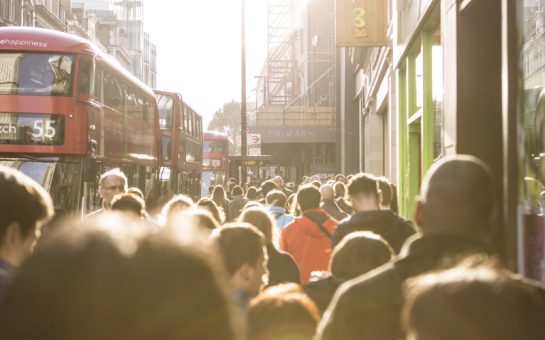Unemployment has risen significantly in London since the start of the Covid-19 pandemic, data released by the Office for National statistics has shown.
In March 2020, 239,000 people were unemployed in the capital, but this rose to 345,000 by February 2021, an increase of 44.4%.
The head of social services at a London based charity has said that this rise in unemployment is increasing the pressure on the sector, and on social services, at a time where the system is already under immense pressure.
However, there are some promising signs for London’s job market, as unemployment saw a decrease of 21,000 between January and February 2021, the first time it fell since the period between April and May 2020.
Donna Kauffman, head of student social services at Hestia said: “We have had the busiest year that we have ever had when it comes to training social work students.
“We have not just seen a rise in the amount of referrals and individuals needing services, but the 10,000+ service users we work with already have in some cases shown increasing vulnerability.
“We’ve had to increase and tailor our assessments and safety planning to make sure people are supported.
“Vulnerable people are already disproportionately over represented in the unemployment arena as resources to support them into employment haven’t always be prioritised by successive governments.”
“In the pandemic, I have read repeated cases about people who have lost their jobs and become homeless, this has led to them sleeping rough whilst putting pressure on their physical and mental health.
“The truth for me having worked in social care for over 30 years is that in any economic downturn, like the one we have just seen as a result of Covid, affects people in temporary and unstable employment, zero hours and temporary contracts for example.
“These people in unstable working contracts are normally those for whom life is already difficult and as such live in rented or shared accommodation with little access to reserves that might sustain them physically or mentally in difficult times.”
Despite these concerns, It’s also the case that unemployment levels have yet to come close to the levels seen after the 2008 Financial Crisis, where unemployment rose to 427,000 in 2010.
However, Kauffman is concerned that that a lack of a national response to this spike in unemployment is letting down thousands of people.
She added: “I think we have let so many people down, it’s just not high enough on anyone’s agenda to fund services properly.
“Wages in front line services and domiciliary care need to raise, front line staff numbers need to increase and thresholds for access to support need lowering to ensure those people who need it can get timely support before their whole lives fall apart.
“In the years I have been working in this field I have seen year on year real funding cuts to social care budgets both in local authorities and the voluntary sector.”




